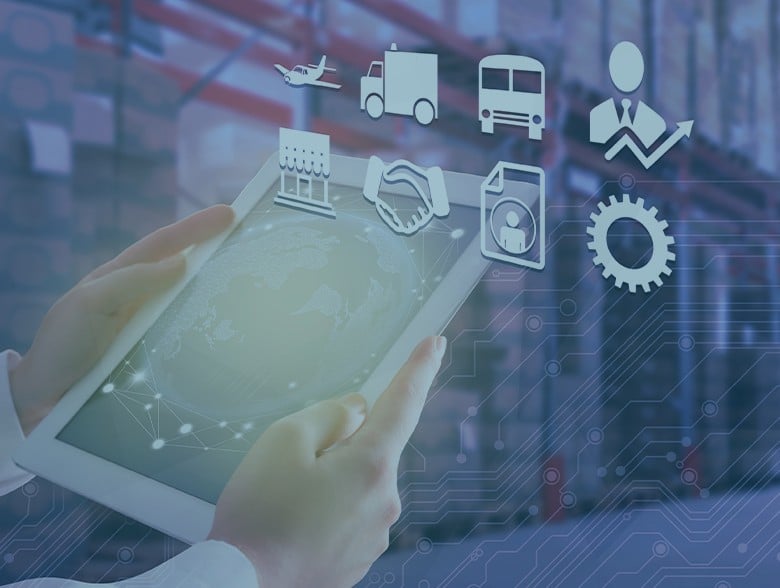Cybersecurity will be one of the key concerns as last-mile logistics companies look to enhance efficiency with autonomous vehicles.
By Anar Mammadov, CEO, Senpex Technologies
Travelers who hail a taxi in San Francisco may be surprised as they settle into the backseat to discover their vehicle lacks a driver. In August 2023, California regulators approved the operation of autonomous taxi services in that state, where Cruise and Waymo had already been providing driverless rides with some restrictions.
The growing acceptance of robotaxis is good news for delivery companies who see autonomous vehicles as a tool for reshaping last-mile logistics. It indicates that AI-driven delivery vehicles could soon be a common site on roadways, harnessing the power of technology to make last-mile logistics more efficient and affordable.
The role of autonomous vehicles in last-mile logistics
Last-mile logistics focuses on the last leg of the delivery process, where products make it into the hands of consumers. The operational complexities involved combined with its labor-intensive nature make last-mile logistics the most expensive phase of the delivery process. By some estimates, it accounts for as much as 53 percent of delivery costs.
As autonomous vehicles take over this phase of delivery, they empower a number of innovations that allow for greater efficiency. The primary cost savings result from removing the labor costs of human drivers. Wages and benefits represent a major component of last mile delivery costs.
Autonomous vehicles also do away with some of the limitations that exist with human drivers. Autonomous vehicles can operate 24/7 without the need for a break. The AI that powers navigation in autonomous vehicles does not get tired or distracted regardless of how long its shift lasts.
By doing away with the need for a human driver, autonomous delivery vehicles can also be smaller. In urban areas, smaller delivery vehicles lead to less congestion as well as enhanced ability to navigate more quickly in tighter spaces.
Improving delivery safety
Autonomous vehicles also have the potential to make last-mile delivery safer. They bring “superhuman” capabilities to navigation that make it easier to detect and avoid accidents.
AI-driven vehicles are capable of 360-degree monitoring with both cameras and sensors, making it virtually impossible for them to be surprised by situations that can lead to collisions. Their response times are also faster than human drivers, with some studies showing AI drivers responding three times faster than human counterparts.
Autonomous vehicles are also able to respond to changing conditions dynamically and objectively. Human subjectivity can impair decision-making when traffic or weather requires driving adjustments. Autonomous vehicles make changes based solely on conditions, adjusting speed, following distance, and other instrument settings as data dictates.
Addressing cybersecurity concerns
One of the downsides of autonomous vehicles is the heightened need for cybersecurity. Because autonomous vehicles are essentially computers on wheels, they are a target for hackers. Attacks that breach vehicle navigation systems could result in a number of issues.
The most dangerous result of a cyber attack would be erratic driving. Autonomous vehicles with compromised navigation systems could quickly become a life-threatening risk on the road. Bad actors could disable braking systems or shut down sensors that protect vehicles from collisions.
Attacks could also focus on the data autonomous vehicles collect. There is a growing debate on the privacy implications of autonomous vehicles. The data collected by vehicle navigation systems, especially if connected to specific companies or clients, could be considered sensitive.
By obtaining remote control of vehicles, hackers could stage Denial of Service attacks. These would not only keep autonomous vehicles from accomplishing their mission, but also potentially shut down the roadways on which they navigate. Ransomware attacks are another possibility that could leave vehicles stranded and vulnerable.
To address these concerns, autonomous vehicle developers are adding cybersecurity professionals to their teams. Waymo, for example, reports it “has developed a robust process to identify, prioritize, and mitigate cybersecurity threats in alignment with industry and government-defined security best practices.”
Experts say a critical step for cybersecurity is anticipating threats so systems can be built from the ground up to repel them. Encrypted communications, authentication protocols, and the isolation of critical systems should all be part of system architecture, rather than added later. Systems should also include defenses designed to detect attacks as they are occurring and trigger safety protocols.
Advances in technology have made autonomous vehicles a reality. The next step is expanding their use in ways that improve efficiency without compromising safety. In the last-mile logistics industry, autonomous vehicles promise to allow for faster deliveries at lower costs, resulting in better service to consumers and higher profits for businesses.
About the Author
 Anar Mammadov is the CEO of Senpex Technology. He is a software development professional with more than 18 years of experience in enterprise solutions and mobile app development. He has applied his practical and results-oriented approach to business to create Senpex Technology, a personalized logistics and delivery service that utilizes groundbreaking artificial intelligence to optimize routes and to provide the fastest, most efficient, last-mile delivery resource for businesses. Senpex can be utilized 24/7, with no interruptions to your delivery needs. Anar can be reached online at [email protected] and at his company’s website, https://web.senpex.com/.
Anar Mammadov is the CEO of Senpex Technology. He is a software development professional with more than 18 years of experience in enterprise solutions and mobile app development. He has applied his practical and results-oriented approach to business to create Senpex Technology, a personalized logistics and delivery service that utilizes groundbreaking artificial intelligence to optimize routes and to provide the fastest, most efficient, last-mile delivery resource for businesses. Senpex can be utilized 24/7, with no interruptions to your delivery needs. Anar can be reached online at [email protected] and at his company’s website, https://web.senpex.com/.


